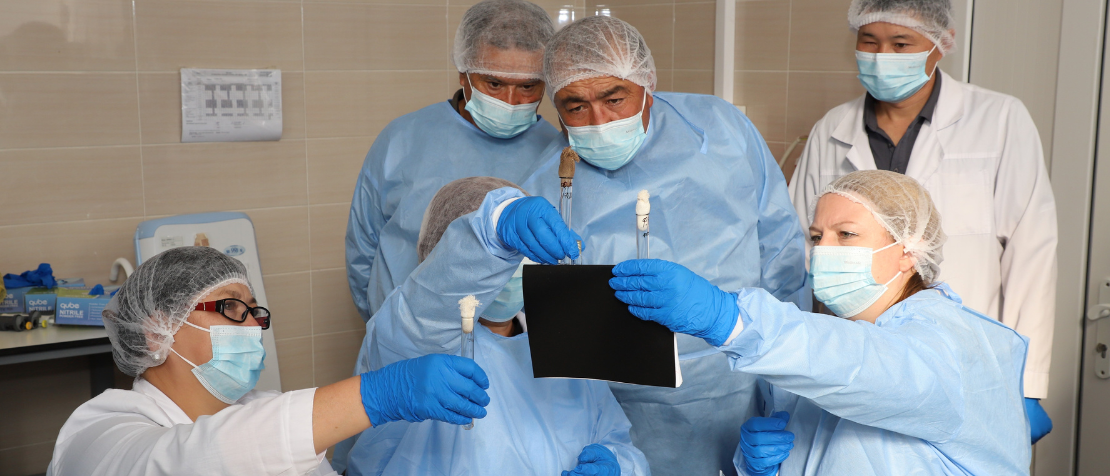New programme addresses zoonotic diseases and strengthens animal health services in Kyrgyzstan

©FAO/Evgeniy Pechurin
Zoonotic diseases – diseases that can pass between animals and people – continue to have major impacts on human health and cause economic losses. To support the Kyrgyz Republic in controlling such diseases, the Food and Agriculture Organization of the United Nations (FAO), in partnership with the Government of the United States of America through the United States Agency for International Development (USAID), and the Ministry of Water Resources, Agriculture and Processing Industry of the Kyrgyz Republic launched the Global health security and pandemic preparedness programme. It should enhance the One Health approach in the country and support its ability to prevent, detect and respond to zoonotic and other public health threats.
On 12 March, more than 80 officials and experts attended the launch event in Bishkek to discuss programme objectives, endorse the programme’s annual work plan, and discuss key activities and priorities concerning implementation.
Zoonotic diseases are commonly spread at the human-animal-environment interface where people and animals interact with each other in their shared environment. Zoonotic diseases can be foodborne, waterborne, vector-borne, transmitted through direct contact with animals, or indirectly by fomites or environmental contamination. Approximately 60 percent of all human pathogens are zoonotic, and approximately 75 percent of recently emerging infectious diseases affecting humans are of animal origin.
“Diseases know no borders. As global trade expands, zoonotic diseases are increasingly posing concerns worldwide,” noted Kuvatbek Bapaev, Technical Adviser and Acting Deputy Representative of FAO in Kyrgyz Republic in his welcoming address. “To face these threats, collaboration, coordination, communication, and concerted action between different sectors are needed, using a multisectoral, One Health approach. It is our task to strengthen Kyrgyz Republic’s capacity to implement such collaboration.”
Zoonotic diseases do not only affect human health, but also animal health and welfare, causing lowered productivity such as by compromised milk or egg quality and safety, or instances of livestock fatalities with negative impacts on farmers’ livelihoods and on the country's economy.
“Animal husbandry plays an important role in the economy of the Kyrgyz Republic as a source of income for a significant percentage of the rural people,” said Mail Aliyaskarov, Deputy Minister of Water Resources, Agriculture and Processing Industry of the Kyrgyz Republic. “Human, domestic animal, wildlife, plant and ecosystem health are closely interrelated.”
For over a decade, FAO has received support from USAID to improve the regional capacity to prevent, detect and respond to disease threats, using a multi-sectoral One Health approach, linking human, animal, and environmental health.
“In collaboration with FAO, our joint initiative will continue enhancement of the monitoring of zoonotic diseases, strengthening of national laboratory and disease surveillance infrastructures, and development of the Kyrgyz Republic’s veterinary workforce. These concerted efforts will substantially improve the country's overall capacity to quickly respond to and effectively manage health risks,” said Nisha Gupta, USAID Health and Education Office Director at the USAID Mission in the Kyrgyz Republic.
While a growing livestock market will offer access to better nutrition and many economic opportunities, intensification will also lead to a greater risk of pathogen emergence and spread. By building capacity to forecast, prevent, detect, and respond to disease emergence, the programme will reduce the impact of zoonoses on lives and livelihoods, and help prevent emergence and spread of potential epidemics and pandemics at source.
Ultimately, the programme should contribute to building a sustainable and robust livestock sector in Kyrgyzstan, as well as ensuring the cumulative health of people and the natural environment.
